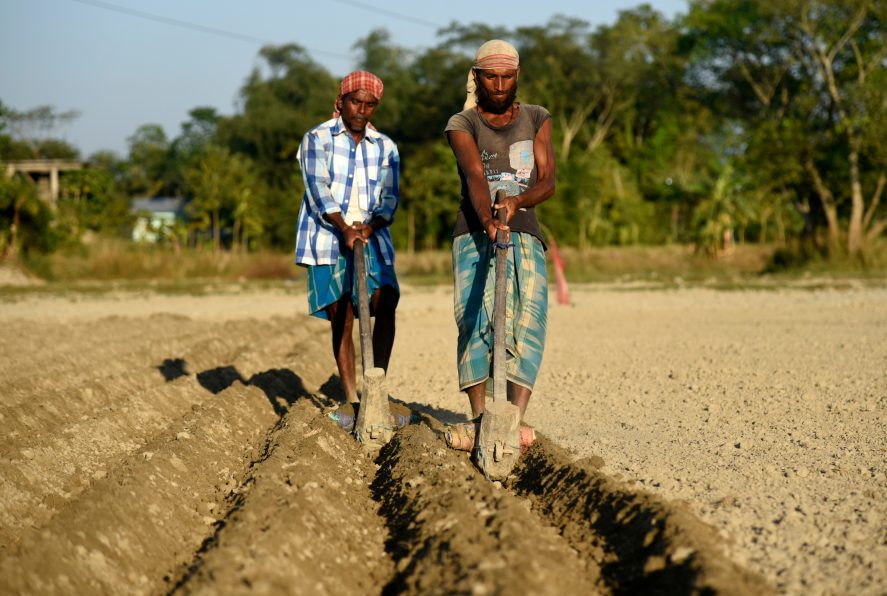2020-21 Annual Report: Improving Farm Yields through Comprehensive Soil Health

This article originally appeared in TCI’s 2020-21 Annual Report. Download the report (PDF) to read more.
Soil degradation, resulting from poor land management practices such as the overuse of fertilizers, can worsen farm productivity. Yet, across India, efforts to improve soil quality have focused almost exclusively on chemical properties, ignoring the physical and biological processes that make soils dynamic and complex living systems.
To improve productivity in Bihar, where rice and wheat yields are well below the national average, TCI is spearheading the use of a comprehensive assessment of soil health that measures 15 properties, representing physical, biological, and chemical processes. A more complete understanding of soil health is vital, as rising demand places India’s farmlands under pressure to bear increasing yields, especially in areas where low-input farming is the norm.
A more complete understanding of soil health is vital, as rising demand places India’s farmlands under pressure to bear increasing yields, especially in areas where low-input farming is the norm.
TCI Scholar Kavya Krishnan is examining how soil health, land management, and cropping systems interact with each other to affect yield. Her study of long-term, controlled agricultural trials gives greater insight into the impact of soil health in building diverse, resilient cropping systems.
Preliminary results suggest that differences in fertilizer application do not appear to influence any of the indicators, but additions of crop residue and organic amendments appear to increase labile carbon and soil protein. Labile carbon is an energy source for microbes that help maintain a healthy soil food web, and protein plays an important role in the storage and release of organic nitrogen.
Krishnan is also exploring low-cost, quick methods for predicting soil health using mid-infrared spectroscopy. This can improve the speed and efficiency of data collection in India, where the need for complete and accurate information to drive policy is crucial.





